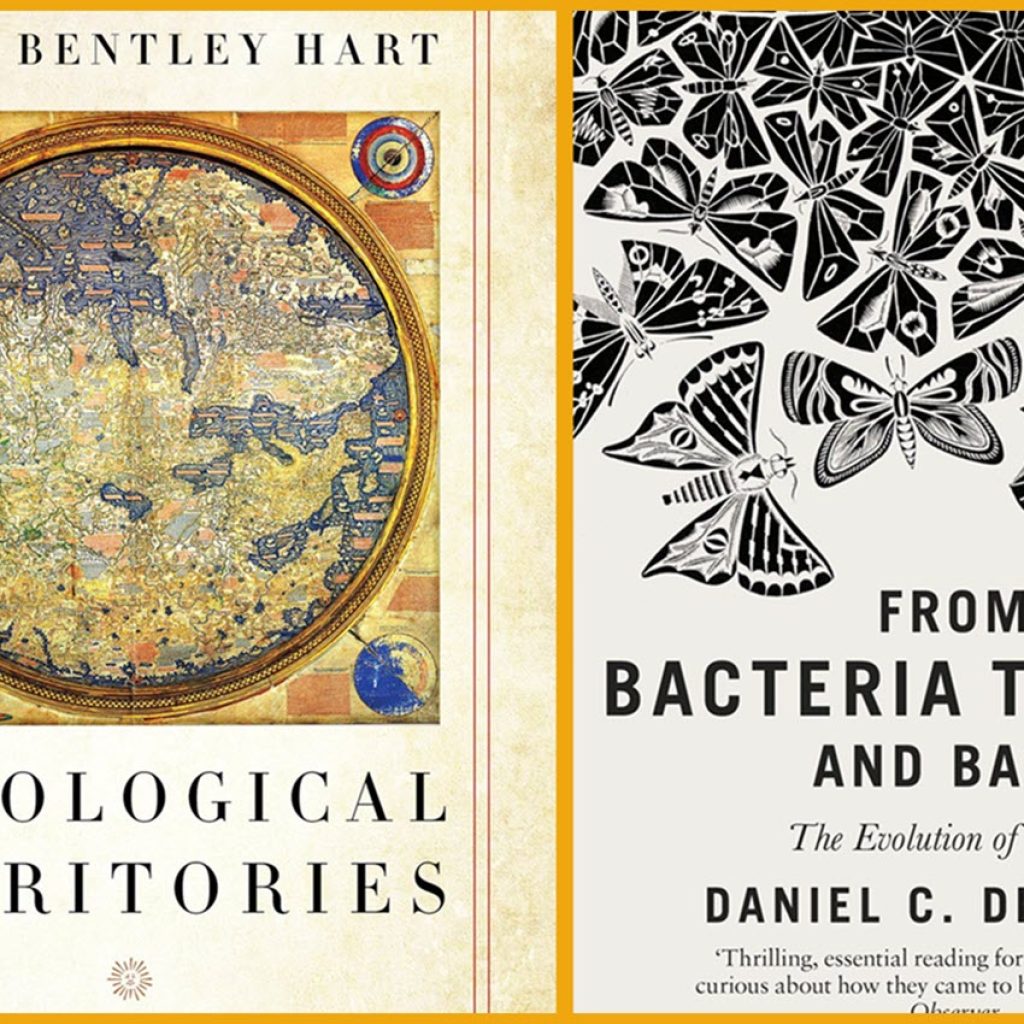Standard Orthodox Creedal Trinitarian Christology Is Coherent Therefore Straw Need Not Apply To Complaint Departments
The goal in giving various excerpts from various sources and juxtaposing them alongside one another is simple:
To marginate edges of what has already been soundly and widely discussed “out there” rather than to try to do what only the full-length essays and books can do (obviously). The benefit is to allude to the fact that none of the topics are, at the end of the day, problematic for Standard Orthodox Creedal Trinitarian Christology or SOCTC moving forward.
Therefore, if and when one seeks to present claims of incoherence in SOCTC the following observations apply:
(A) It is not enough to present another set of syllogisms to show incoherence if and when that set merely gives a specific set of claims which are made up of its own premises which differ from the premises within SOCTC.
(B) It is not enough that one present merely a specific claim of incoherence juxtaposed to an SOCTC claim – or we can say that [Claim-A || Claim-B] is an argument-free box.
(C) One needs to unpack an actual whole [set] of [premises] which make up a [claim] within SOCTC, not merely [a claim] or [a conclusion] within SOCTC.
(D) For example: “Please quote a specific section in one of the attached PDFs in this post and point out a specific point of incoherence.”
The following PDF’s offer a few examples of the tediousness in detail within narrow swaths of SOCTC, and again the goal is *not to present them as arguments but rather to present a few basic examples of what has already been soundly and widely discussed “out there” and thereby present a few suggestions of the tedious level of detail that is “out there” and that is “readily accessible” such that one needn’t think a challenge of incoherence which [1] lacks that same tediousness in detail and/or [2] fails to rise to the level of descriptions A, B, D, and D listed in the previous series would ipso facto merit consideration:
- Excerpts: Trinity and God the Creator Reginald Garrigou Lagrange Pages 1 To 312 of 1015 https://metachristianity.com/wp-content/uploads/2024/05/excerpts-trinity-and-god-the-creator-reginald-garrigou-lagrange-pages-1-to-312-of-1015.pdf
- Excerpts: Christology From Intra Trinitarian Agency and Distinct Self Consciousness and I Thou https://metachristianity.com/wp-content/uploads/2024/05/christology-from-intra-trinitarian-agency-and-distinct-self-consciousness-and-i-thou-via-excerpts-from-thomas-h-mccall.pdf
- Incarnation: Neither Subtraction Nor Addition — The Words Terminative Assumption of a Human Nature by James E Dolezal https://metachristianity.com/wp-content/uploads/2023/07/neither-subtraction-nor-addition-the-words-terminative-assumption-of-a-human-nature-by-james-e-dolezal-pdf.pdf
- Excerpts: The Consciousness Of The Historical Jesus — by Austin Stevenson PhD https://metachristianity.com/wp-content/uploads/2024/05/excerpts-the-consciousness-of-the-historical-jesus-by-austin-stevenson-phd.pdf
- Excerpts: Self Consciousness In Trinity And In Christ — from Theological Reflections of a Christian Philosopher by Joseph J Sikora SJ https://metachristianity.com/wp-content/uploads/2024/05/excerpts-self-consciousness-in-trinity-and-in-christ-from-theological-reflections-joseph-j-sikora-s-j.pdf
- Trinity, Simplicity and the Status of Gods Personal Relations by James Dolezal https://metachristianity.com/wp-content/uploads/2024/11/Trinity-Simplicity-and-the-Status-of-Gods-Personal-Relations-by-JAMES-DOLEZAL.pdf
- Twelve Argument Against The Distinction Of Persons In The Same Essence Refuted — from Controversies Of The Christian Faith By Robert C Bellarmine https://metachristianity.com/wp-content/uploads/2024/05/twelve-argument-against-the-distinction-of-persons-in-the-same-essence-refuted-via-controversies-of-the-christian-faith-by-robert-c-bellarmine.pdf
Trinitarianism and Christology in the age of technology leave no room for “strawman” “complaints” (so to speak) for the obvious reason that content is just too accessible. Various PDF’s are juxtaposed to zoom in on a few specific topics. Not twenty topics but, say, four or five narrow zip codes. This post and those PDF’s also refer to a few outside resources that offer not only ample inroads but also rational closure in topics that are only briefly alluded to here (…see the end of this post for another list of resources…). The listed books and essays and the provided excerpts are all part of a small sample of items put forward simply to provide context on the range and depth of “available” “content” that is “out there” and, to springboard off of that with the following:
Therefore Straw Need Not Apply To Complaint Departments:
Because of such wide accessibility of information there is simply no reason to bring complaints of incoherence in SOCTC to IF one’s syllogistic content is not reasonably informed by at least several overlapping Christian “swaths” of “content” (so to speak) and reasonably specific.
Eight Examples:
(1) Complaint: “But Trinity!”
See perhaps James Dolezal’s Trinity and Simplicity and the Status of God’s Relations. What are the categories? How many are accidental? Where? What is a Real Distinction/Relation?
“….the personal relations in the Godhead are real relations properly predicated of God, and yet are not accidents. The divine relations are properly relations insofar as the ratio of relation entails reference of one to another. In God these cannot be merely notional in that the persons have their relations within the self-same divine nature, and they cannot be accidents inasmuch as God is simple…. // ….the real yet non-accidental character of the divine relations further requires that one distinguish between the being (esse, act of existence) and specific character (ratio) of accidents….”
So, then? Well, read the 20 pages from Dolezal and then, and only then, offer a specific, premise by premise syllogism and interact with something the Christian actually claims.
(2) Complaint: “Incarnation is adding to God or else subtracting from God”
See “Neither Subtraction, Nor Addition: The Word’s Terminative Assumption of a Human Nature” by Dolezal and describe Terminative Assumption and add in, say, Being and Non-Being and Pure Act and Divine Conservation and Divine Concurrence and Proportionate Causality since they all overlap.
So, then? Well, read the 20 pages from Dolezal and, say, another 30 pages on the other terms added in, and, then, and only then, offer a specific, premise by premise syllogism and interact with something the Christian actually claims.
(3) Complaint: John 1:1 and interpreting it as Logos was God vs. Logos was a-god and, well the complaint goes as follows: “But it cannot be in the Definite Sense and yet Trinity-Folks say the grammar IS in the definite sense and in fact they NEED it to be in the definite sense…”
See perhaps Danial Wallace and many others who find it in the qualitative sense and not the definite sense, and, then, ask, say, why is it that Trinitarian folks neither expect it to be nor need it to be in the definite sense? Why don’t Trinity folks expect Zero-Distinction between Uncreated Father and Uncreated Logos?
So, then? Well, read 20 pages from something actually relevant to those specific realities and, then, and only then, offer a specific, premise by premise syllogism and interact with something the Christian actually claims.
(4) Complaint: Predications of Christ vis-à-vis the Hypostatic Union (God can’t die / Christ died)
See perhaps Timothy Pawl’s In Defense of Conciliar Christology ((…its “twin” book is Pawl’s In Defense of Extended Conciliar Christology…)). From page 75 to page 175 Pawl looks at problems with supposedly incompatible predications (God Cannot Die//Christ Died//and so on). After that section of 100 pages he concludes:
“As Part II of this book comes to a close, I note that I take this view to be the best offered, and I take it to solve the Problem. In the next two chapters, which compose Part III, I move on to other objections to Conciliar Christology.”
So, then? Well, read the 100 pages, and, then, and only then, offer a specific, premise by premise syllogism and interact with something the Christian actually claims.
(5) Complaint: Predications of Christ vis-à-vis the Hypostatic Union (again)
Perhaps see Thomas Aquinas’ Summa Theologica, specifically Part III or “Tertia Pars”. Note in that part that it has 59 (fifty-nine) questions on the nature of Christ, Hypostatic Union, Fully Man, Fully God, and so on. Each question itself then has multiple sub-questions — tedious — for example, from the 59 questions take, say, question 16 which is as follows:
Question 16: OF THOSE THINGS WHICH ARE APPLICABLE TO CHRIST IN HIS BEING AND BECOMING
In Twelve Articles:
- Whether this is true: “God is man”?
- Whether this is true: “Man is God”?
- Whether Christ may be called a lordly man?
- Whether what belongs to the Son of Man may be predicated of the Son of God, and conversely?
- Whether what belongs to the Son of Man may be predicated of the Divine Nature, and what belongs to the Son of God of the human nature?
- Whether this is true: “The Son of God was made man”?
- Whether this is true: “Man became God”?
- Whether this is true: “Christ is a creature”?
- Whether this is true: “This man,” pointing out Christ, “began to be”? or “always was”?
- Whether this is true: “Christ as man is a creature”?
- Whether this is true: “Christ as man is God”?
- Whether this is true: “Christ as man is a hypostasis or person”?
- e.g. see https://www.amazon.com/Summa-Theologica-Part-Tertia-Pars-ebook/dp/B009DNQRES
- e.g. see https://www.newadvent.org/summa/4016.htm
- e.g. see http://www.documenta-catholica.eu/d_1225-1274-%20Thomas%20Aquinas%20-%20Summa%20Theologiae%20-%20Tertia%20Pars%20-%20EN.pdf#page30
So? Read the thirty (30) pages looking at those, and then, and only then, offer a specific, premise by premise syllogism and interact with something the Christian actually claims. Add in 17 as per the following:
Question 17: OF CHRIST’S UNITY OF BEING: In Two Articles
- Whether Christ is one or two?
- Whether there is only one being in Christ?
So? Read those x-number-of-pages and then, and only then, offer a specific, premise by premise syllogism and interact with something the Christian actually claims.
(6) Complaint: “DDS or the Doctrine of Divine Simplicity is not coherent…”
Here is what that challenge must overcome: DDS isn’t the kind of “Absolute-Zero-Distinction!” that has surfaced over the last several decades — that Hard-Frozen-Block (void of “Verb” so to speak) is not what Aquinas describes nor is it true of the *Living* (Verb*ing*) God vis-a-vis Being as Procession. That’s it. DDS is not thirty claims. It is two claims, or, to put it another way:
DDS = [Composition does NOT exist] + [Real Relations DO exist]. That’s it. That’s DDS. DDS is coherent, which is to say: Trinity + Simplicity = Coherent. Look over the first 7 centuries and the ecumenical councils and observe how much language populates bringing those two zip codes together into One Seamless Meta-Zip-Code, so to speak.
Rejecting DDS: God = Composition = Atheism ||| Rejecting Trinity: Golgotha = Man As Means = Atheism
The following two videos and one essay help dispel the erroneous notion that DDS is the kind of “Absolute-Zero-Distinction!” that has surfaced over the last several decades:
Steven Duby and Joseph Minich on Divine Simplicity — “The Lord Is One: Reclaiming Divine Simplicity” https://youtu.be/6A81TtlH_ls?si=P5ZAM4IXhVKUV8-H
The Trinity And Divine Simplicity https://www.youtube.com/live/2eGVTVqs9BE?si=33zdu9qGTYsx8PGj
Why Denial of Divine Simplicity Implies Atheism https://afkimel.wordpress.com/2021/04/27/why-denial-of-divine-simplicity-implies-atheism-2/
So? Read the proverbial x-number-of-pages and then, and only then, offer a specific, premise by premise syllogism and interact with something the Christian actually claims.
[7] Complaint: Some version of “But Slavery!”
Granted this is off topic from the provided PDF’s which are all within a few narrow zip codes of Trinity/Christology, but, the “reasoning” regarding “Complaints About Things One Obviously Has Little Understanding Of” is the same:
That’s straightforward assuming the person making the complaint actually wants to agree with Scripture’s definition of slavery. Which is, of course, that slavery is yet another swath of privation’s many pains (slavery is Evil). So, one could go to www.slavery.bible which is Slavery In The Christian Metanarrative Is Defined As A Swath Of Privations Many Pains Therefore The Christian Metanarrative Cannot Have A Pro Slavery Verse Much Less A Pro Slavery Any-Thing which – which is also at https://metachristianity.com/SLAVERY-IN-THE-CHRISTIAN-METANARRATIVE-IS-DEFINED-AS-A-SWATH-OF-PRIVATIONS-MANY-PAINS and scroll down just a few clicks to the “Primer 2 of 3 Continued” section for the discussion there labeled Scripture’s Meaning Makers and Slavery.
So? Read on x-number of items or pages and add in, say, eschatology and, say, other items there and then, and only then, offer a specific, premise by premise syllogism and interact with something the Christian actually claims.
It’s just not complicated.
Solution:
Know enough about the topic to Steelman and make a habit of Steelmanning
That is the basic set of observations but of course the “complaints” could be any number of things and, so, to hit the “big” “picture” this brief set of observations and essays and excerpts are inside of a few related zip codes looking at Trinity and Christology. And so, on those topics too we come to the Solution: Steelmanning/Steelman:
“…an essential criterion for successful dialogue with others consists of truly understanding the other and presenting opposing views in the strongest light possible (steel-manning)…” (Randal Rauser)
Similarly:
“…highly value a willingness and ability to try to reconstruct an opponent’s arguments in as plausible and fair-minded a way as possible. Certainly that was something drilled into me in grad school, and I have always been grateful for it. Again, there are analytic philosophers who do not live up to this ideal, and I can certainly think of some analytic philosophers with a prominent online presence who do not even try to live up to it at all when they think that refraining from doing so might further some political cause they favor. Still, it is an ideal that analytic philosophers all know they should strive to live up to….” (Edward Feser)
Basic Resources:
We say “basic” because claims of incoherence are fine but if and only if they actually interact with “Basic” “SOCTC“.
[A] Timothy Pawl: In Defense of Conciliar Christology: A Philosophical Essay (Oxford Studies in Analytic Theology) https://www.amazon.com/Defense-Conciliar-Christology-Philosophical-Analytic/dp/0198765924
[B] Austin Stevenson: The Consciousness of the Historical Jesus: Historiography, Theology, and Metaphysics (T&T Clark Studies in Systematic Theology) https://www.amazon.com/Consciousness-Historical-Jesus-Historiography-Metaphysics-ebook/dp/B0CPPGFTHB/
[C] Thomas Aquinas: Summa Theologica Part Three (Tertia Pars) e.g. see https://www.amazon.com/Summa-Theologica-Part-Tertia-Pars-ebook/dp/B009DNQRES and see https://www.newadvent.org/summa/4016.htm and see http://www.documenta-catholica.eu/d_1225-1274-%20Thomas%20Aquinas%20-%20Summa%20Theologiae%20-%20Tertia%20Pars%20-%20EN.pdf#page30
[D] Classical Theism: New Essays on the Metaphysics of God (Routledge Studies in the Philosophy of Religion) https://www.amazon.com/gp/aw/d/B0BP9FNK4B/ ~note several of its chapters:
- Some Arguments For Divine Simplicity, Alexander R. Pruss
- Thomist Classical Theism: Divine Simplicity Within Aquinas’ Triplex Via Theology, Daniel De Haan
- Divine Ideas And Divine Simplicity, Gregory T. Doolan
- How The Absolutely Simple Creator Escapes A Modal Collapse, Christopher Tomaszewski
- Defending Divine Impassibility, James E. Dolezal
- The Incarnation Of A Simple God, Tim Pawl
[E] Twelve Argument Against The Distinction Of Persons In The Same Essence Refuted via Controversies Of The Christian Faith By Robert C Bellarmine https://metachristianity.com/wp-content/uploads/2024/05/twelve-argument-against-the-distinction-of-persons-in-the-same-essence-refuted-via-controversies-of-the-christian-faith-by-robert-c-bellarmine.pdf
Regarding An Earlier Book:
The Consciousness of The Historical Jesus ~ the book is reviewed by Jose Isidro Belleza, University of Cambridge at https://thomistica.net/book-reviews/https/thomisticanet/quaestiones-url/consciousness-historical-jesus
Excerpt:
“…..Stevenson’s mapping of the five modes of accidental union onto five prominent streams of contemporary Christology highlights the differences between the tradition of historical Jesus scholarship, on the one hand, and the tradition of classical Christology with its essential-participative model of the hypostatic union, on the other hand. He thus demonstrates the clear mutual implication of metaphysics and historical studies, further showing how the tendency of major historical Jesus scholars to question Chalcedonian Christology is not a purely objective and historically cogent technique, but as a method itself marked by its own metaphysical and historiographical biases. The defense of Chalcedon, presented with the aid of Thomas Aquinas, also is a welcome addition to historical theology that helps to recontextualize the doctrinal developments of the Patristic age as themselves historically grounded and in continuity with the biblical data as understood within the Church. The final chapter on Christ’s beatific knowledge, which I cannot summarize here, places Stevenson in the company of Gaine, Hannon, Legge, Lim, and White as a vital contributor to Christological scholarship within the Thomistic tradition. Both the maximalists and non-maximalists will have much to consider in light of The Historical Consciousness of Jesus.”
End Excerpt.
God is Pure Absolute Personhood Therefore All Processions Are Purely Absolutely Personal
Non-Trinitarians forget too much. Their complaints reveal that they are wholly unaware of the following facts:
God is not a being
God is not a person
God does not exist
All of the Non-Trinitarian’s definitions are therefore wrongheaded. Thereby all their syllogisms follow suit. They cannot speak of one who isn’t a being, who isn’t a person, or who doesn’t exist. They have no idea how. The very suggestion seems to them nonsensical for in their thinking God is “a” “being”. They cannot fathom how or why the following is the necessarily the case:
To have personhood is not to be Personhood itself. To have existence is not to be Existence itself. To have being is not to be Being itself. I don’t have i/me. I am i/me.
Meanwhile Scripture forces our hand and the Trinitarian learns the semantics of Eternal Speech:
God is Being Itself
God is Personhood Itself
God is Existence Itself
All the Trinitarian’s definitions are therefore properly informed. Thereby all their syllogisms follow suit. They speak of One Who is Pure Being, Pure Personhood, Pure Existence, Pure Act.
Therein:
God is Being Itself therefore all Procession necessarily entails Absolute Being.
God is Personhood Itself therefore all Procession necessarily entails Absolute Personhood.
God is Existence Itself therefore all Procession necessarily entails Absolute Existence.
Therein:
Pure Being = Pure Personhood = Pure Existence = Pure Act
Therein:
All Procession Is Necessarily Personal All…The…Way…Down
Therein:
Procession is Being
Being is Personhood
Personhood is Existence
To emphasize the proper conceptual roadmap of the metaphysically irreducible terminus:
Pure Procession is Pure Being
Pure Being is Pure Personhood
Pure Personhood is Pure Existence
To speak of Being is to speak of Personhood is to speak of Existence is to speak of Pure-Act is to speak of Absolute Consciousness is to speak of GOD vis-à-vis the Trinitarian Life vis-à-vis Being Itself as Timeless Reciprocity and Ceaseless Self-Giving.
To speak of Imago Dei just is to speak of THAT which just is to speak of the Blueprint of all things Adamic.
That’s all Prologue — so to speak — as in the following sense:
“Prologue: Next in order we consider the divine relations. [There Thomas Aquinas] says “next in order” because according to faith these relations are the relations of origin or procession, inasmuch as the Son proceeds from the Father, and the Holy Ghost proceeds from the Father and the Son. Therefore the processions are the foundation of really distinct relations which, as we shall see in the following question, formally constitute the persons. Hence we are now speaking implicitly of the persons although they are not yet explicitly mentioned.” (~from The Trinity and God the Creator by Reginald Garrigou-Lagrange)
God Is Absolute Consciousness:
More inroads to the same explanatory terminus of Pure Being = Pure Personhood = Pure Existence = Pure Act such that All Procession is Necessarily Personal All – The – Way – Down are found in the following quotes:
[A] “…the concept of being is one of power: the power of actuality, the capacity to affect or to be affected. To be is to act. This definition already implies that, in its fullness, being must also be consciousness, because the highest power to act — and hence the most unconditioned and unconstrained reality of being — is rational mind. Absolute being, therefore, must be absolute mind. Or, in simpler terms, the greater the degree of something’s actuality, the greater the degree of its consciousness, and so infinite actuality is necessarily infinite consciousness. That, at least, is one way of trying to describe another essential logical intuition that recurs in various forms throughout the great theistic metaphysical systems. It is the conviction that in God lies at once the deepest truth of mind and the most universal truth of existence, and that for this reason the world can truly be known by us. Whatever else one might call this vision of things, it is most certainly, in a very real sense, a kind of “total rationalism.” (D.B. Hart)
[B] “To speak of God, however, as infinite consciousness, which is identical to infinite being, is to say that in Him the ecstasy of mind is also the perfect satiety of achieved knowledge, of perfect wisdom. God is both the knower and the known, infinite intelligence and infinite intelligibility. This is to say that, in Him, rational appetite is perfectly fulfilled, and consciousness perfectly possesses the end it desires.” (David Bentley Hart)
[C] “….if reason’s primordial orientation is indeed toward total intelligibility and perfect truth, then it is essentially a kind of ecstasy of the mind toward an end beyond the limits of nature. It is an impossibly extravagant appetite, a longing that can be sated only by a fullness that can never be reached in the world, but that ceaselessly opens up the world to consciousness. To speak of God, however, as infinite consciousness, which is identical to infinite being, is to say that in Him the ecstasy of mind is also the perfect satiety of achieved knowledge, of perfect wisdom. God is both the knower and the known, infinite intelligence and infinite intelligibility. This is to say that, in Him, rational appetite is perfectly fulfilled, and consciousness perfectly possesses the end it desires. And this, of course, is perfect bliss.” (D.B. Hart)
What is Eternal is not silence, but Discourse:
[D] “….in the prologue of John’s Gospel… we learn… at the beginning of the whole tale that the biblical God has eternally a word to say, a word that as God’s eternal Word must conversely be God… The Word that eternally is with God and so is God, is discourse… in the triune God, the God of John’s prologue, there is no such thing as the silence of eternity. What is eternal is not silence, but discourse… This does not mean that God in himself is silent and then happens to speak, but rather that precisely the breaking of silence is eternally constitutive of God’s triune life…”
(~from Joining The Eternal Conversation: John’s Prologue and the Language of Worship – by Robert W. Jenson ~ https://metachristianity.com/wp-content/uploads/2024/05/joining-the-eternal-conversation-johns-prologue-language-of-worship-robert-w-jenson.pdf)
[E] “This is true in two related and consequent senses: on the one hand, love is not originally a reaction but is the ontological possibility of every ontic action, the one transcendent act, the primordial generosity that is convertible with being itself, the blissful and desiring apatheia that requires no pathos to evoke it, no evil to make it good; and this is so because, on the other hand, God’s infinitely accomplished life of love is that trinitarian movement of his being that is infinitely determinate – as determinacy toward the other – and so an indestructible actus purus endlessly more dynamic than any mere motion of change could ever be. In him there is neither variableness nor shadow of turning because he is wholly free, wholly God as Father, Son, and Spirit, wholly alive, and wholly love. Even the cross of Christ does not determine the nature of divine love, but rather manifests it, because there is a more original outpouring of God that – without needing to submit itself to the order of sacrifice that builds crosses – always already surpasses every abyss of godforsakenness and pain that sin can impose between the world and God: an outpouring that is in its proper nature indefectible happiness.” (D.B. Hart)
[F] “[The] very action of kenosis is not a new act for God, because God’s eternal being is, in some sense, kenosis – the self-outpouring of the Father in the Son, in the joy of the Spirit. Thus Christ’s incarnation, far from dissembling his eternal nature, exhibits not only his particular propriumas the Son and the splendor of the Father’s likeness, but thereby also the nature of the whole trinitarian taxis. On the cross we see this joyous self-donation sub contrario, certainly, but not in alieno. For God to pour himself out, then, as the man Jesus, is not a venture outside the trinitarian life of indestructible love, but in fact quite the reverse: it is the act by which creation is seized up into the sheer invincible pertinacity of that love, which reaches down to gather us into its triune motion.” (D. B. Hart)
[G] “What’s the difference between mere individuation and personal identity distinction…?” “….if you individuate a person you’ve made them personally distinct, having provided a basis for distinguishing this who from other whos. I don’t know why you’d need more. That seems distinct from the question of whether a subsisting relation can be a person….” “….I’m trying to tease out what “personal” means here. If it means “of a person” then it’s hard to know how an individuation of a person (having intellect and will) is impersonal. I agree each person knows who he is. I don’t see on the face of it how that is not so on the subsisting relations view. It’s only that each knows this by the same act of knowing. That one act of knowing of the divine essence is had in three really distinct relations….” (David Mahfood)
[H] “….the identity of Communicate transcends efficient and final causality for that which Is Caused does not exist before in Act whereas that which Is Communicated exists before in Act….” (Garrigou-Lagrange, italics added)
[I] “Intentionality is the key to the issue: either an ego intends the other or an ego is constituted in the act of becoming the other as other. For St. Thomas, self-consciousness is a dimension of a spiritual act: it follows that “self” is simply nothing outside of an act of consciousness and to be conscious is to be conscious of an other. Consciousness, in Thomistic terms, is always relational and the term of the relation is the other.”
(~from Frederick D. Wilhelmsen “Being and Knowing: Reflections of a Thomist”)
[J] “Trinity As Paradigmatic Love” by James Chastek at Just Thomism https://metachristianity.com/wp-content/uploads/2022/05/trinity-as-paradigmatic-love-by-james-chastek-at-just-thomism-.pdf
Postscript 1 of 3:
The following is perhaps of interest:
Trinity, Simplicity and the Status of Gods Personal Relations
by James Dolezal
https://metachristianity.com/wp-content/uploads/2024/11/Trinity-Simplicity-and-the-Status-of-Gods-Personal-Relations-by-JAMES-DOLEZAL.pdf
Postscript 2 of 3:
The following is a rather abbreviated discussion placed here primarily to allude to the overall “landscape” of some of the concepts involved in a few layers.
So with that clarification given:
As Trinitarians we affirm Divine Simplicity. To our Non-Simplicitarian and/or Non-Trinitarian friends:
False: Simplicity = Zero Distinctions
True: Non-Simplicitarianism Collapses
True: Procession = Being As Distinction
The philosophy of mind is helpful in locating where and why Non-Simplicitarianism collapses and perhaps a few inroads as to how or why:
The reason Physicalism fails to retain the Unity of Mind/Consciousness is because it must equivocate where (1) (metaphysical) Logical Identity and (2) (metaphysical) Singularity are concerned vis-à-vis (3) all (metaphysical) First Person termini. An [A] must be equated to a [Non-A] both in Being and in Identity and thereby all First Person termini collapse into Non-Being. No Non-Trinitarian map of Processions as Being escapes the reductio — and Nonsimplicitarians are not able to address that nor the 4D Static Block’s similarities to their fundamentally Verbless God. There are only two options:
Simplicitarian & Non-Simplicitarian
And to clarify:
Trinitarian = Simplicitarian
Key Collapse:;
Only the forfeiture of and dissolution of Absolute Consciousness allows one to claim incoherence in Simplicity and ultimately in Procession||Trinity. That move into that forfeiture and that dissolution is costly and eventually forces the Hard Problem of Consciousness i.e. locating Singularity i.e. “I” in First-Person is not solvent in Logical Identity — *not *even *in *principle. A brief excerpt from another essay regarding the relevant Chain-Of-Logical-Identity there:
BEGIN ARROW-EXCERPT:
Non-Theists or physicalists or etc. may say:
“But the Hard Problem of Consciousness is not hard at all. Approximation is good enough.”
That’s fine to say but one must mean what one says and follow-through — and so the following:
Basic Reply:
Ok. To clarify:
Your claim is that the physicalist has solved Equivocation in logical identity along the way FROM —> the Irreducible Singularity that is First Person/I/i/I-Am —> TO —> Gravity or whatever terminus physicalism opts for etc.?
Yes? For example:
If we start with, say, gravity and begin drawing arrows one need never equivocate logical identity on either side of any arrow:
A <—> B <—> C <—> D <—> …..Z
Such that, because there never is a single step in which we equivocate in *logical *identity we can therefore remove all the middle arrows and get to the point:
A <—> Z
A = Z
Where:
A = Gravity ((whatever fundamental nature/wellspring one posits))
Z = I/i ((fundamental nature that is the Singularity || First Person))
Yes? Or do you mean something different?
Perhaps [A] = [Not-A] ?
End Basic Reply.
(…but continuing with “Arrow-Excerpt”…)
Regarding the aforementioned Chain of Logical Identity vis-à-vis A <—> B <—> C <—> D <—> …..Z the following is not an argument and is given only to mention the Christian Metaphysic and allude to its inherent means by which to thoroughly fund all requisite bookkeeping:
No Chain of Continuity vis-à-vis Identity will ever tolerate [A] = [Non-A]
No Chain of Continuity vis-à-vis Being will ever tolerate [A] = [Non-A]
No Chain of Continuity vis-à-vis Existence will ever tolerate [A] = [Non-A]
—&—
Chain of Continuity vis-à-vis Identity||Being||Existence||[I-AM]||Absolute-Consciousness
Principle of Proportionate Causality
Principle of Divine Concurrence
Principle of Divine Conservation
—&—
The Great I-AM = Absolute Consciousness = Pure Act = Being Itself = Existence Itself = Metaphysical Wellspring of All Ontological Personality
END ARROW-EXCERPT.
Keeping that in mind we find that Non-Trinitarian Monotheism fails because:
IF there were no Processions of/via Pure-Act vis-à-vis Absolute Consciousness aka the Divine Mind THEN there could only be Non-Trinitarian Monotheism — HOWEVER — in the Unity of Being/Consciousness we discuss the Living God and the moment we arrive at I-AM we arrive at Absolute Consciousness and, then, the moment we arrive there we arrive at the Self-Aware —and, then, that necessarily arrives as Communique||Processions — and, then, that necessarily arrives as Distinction not of Composition but of Relation and, then, that just is the entailment of Logos||Communique. It us uncanny but expected that the unicity of [Pure-Act] + [God-Can-Do-Otherwise] forces more vectors into view, for example:
All Non-Theisms and the Non-Trinitarian Monotheist fail to break free of the following problems:
Accounting for the combination of (1) Pure Act and (2) God-Can-Do-Otherwise.
By that we mean in the same sense as we find in the proverbial 4D Block/Static Block within which all Motion/Verb is finally reduced to Circularity, Equivocation, and Blind Axiom aka ontological illusion aka non-being ((…the short version is that the Conscious Observer is both the Why and the How…)). As such all Non-Trinitarian Monotheisms are forced into the following:
All-Is-Non-Distinction
…because
There is no Distinction-Void-Of-Composition
…and therefore we are left with
God-Cannot-Do-Otherwise
That holds because there is no possibility of Distinction–Void-Of-Composition — and therefore no possibility of Communique — and therefore of Procession — of Eternal-Speech — of This||That — of Yes||No — of Create||Not-Create — and in fact of All Ontological Possibility whatsoever vis-à-vis Absolute Consciousness vis-à-vis Pure Act vis-à-vis Being Itself vis-à-vis Procession Itself.
Here’s the thing:
Notice that the Living God entails not only Verb but also I-AM and therein Fundamental Distinction void of Composition and Non-Trinitarian Monotheisms cannot get there.
Here’s the thing about that:
God is Pure Absolute Personhood Therefore All Processions Are Purely Absolutely Personal and Non-Trinitarian Monotheisms cannot get there.
All (1) Non-Trinitarian Monotheisms and all (2) Non-Theisms face incoherence BECAUSE they are forced to forfeit the Unity of Consciousness as we map the Great Chain of Being — which means they are forced to retain the following untenable terminus:
Mind||Consciousness as Being is void of all Procession||Communique — and therein void of all Distinctions. Equivocation||Elimination become the cheat. This is merely a brief item to point out a few key loci in which the Trinitarian Map succeeds in pushing through to closure in the self-explanatory explanatory terminus free of circularity & equivocation — while — simultaneously — pointing out those same key loci and where/why the Non-Trinitarian & Non-Theist fall into this/that Reductio Ad Absurdum. See philosophy of mind http://Mind.Bible and see where and how epistemology is endlessly lost within the Münchhausen Trilemma ~ and so on.
The many epistemological and logical catastrophes that arrive at the forfeiture of Absolute Consciousness || the Great I-AM as one maps the Great Chain of Being become undeniable as one navigates the (Ontic) Philosophy of Mind: http://Mind.Bible Meanwhile the Christian Metaphysic carries forward to the following chain-of-logical-identity:
Absolute Consciousness = Being = Logos = Communique = Procession = Distinction
Only the Trinitarian Life coupled to Proportionate Causality fully grounds and funds the Contingent Conscious Observer. Only the Trinitarian Life survives the unavoidable litany of metaphysical reductions to absurdity faced in mapping the Great Chain of Being. All others are forced to retain the following untenable terminus:
Absolute/Pure Consciousness is void of Absolute/Pure Communique/Procession — hence void of Absolute/Pure Relation — hence void of Absolute/Pure Distinction — hence void of Absolute/Pure Act.
The Non-Trinitarian Monotheist must expunge all Communique||Verb (Procession) and while it’s not the topic here that ultimately forces that paradigm into the same absurdities of Non-Theism’s “4D Block” which is a Static Block housing Pure Stasis void of all Verb||Act as all Verb reduces to Illusion and so too the Conscious Observer suffers the loss of all First Person Ontics because all such points of identity collapse into illusion aka non-being thus failing the Hard Problem of Consciousness. Physicalist thinking forfeits the Hard Problem of Consciousness — of I-AM — because it cannot retain Logical Identity in and through Procession||Essence in and through Unity||Singularity in and through Closure.
Postscript 3 of 3:
Mind/Consciousness as per www.Mind.Bible i.e. https://metachristianity.com/consciousness-emergence-intentionality-searle-reason-atop-the-irrational/
“Trinity As Paradigmatic Love” by James Chastek at Just Thomism https://metachristianity.com/wp-content/uploads/2022/05/trinity-as-paradigmatic-love-by-james-chastek-at-just-thomism-.pdf
John 1 Opening Verses In Prologue With Greek and Grammar Observations by Thomas Dierson https://metachristianity.com/wp-content/uploads/2024/05/john-1-opening-verses-in-prologue-with-greek-and-grammar-observations-by-thomas-dierson.pdf
John 1 and 1C and Colwell and Greek and Grammar by Colin Green https://metachristianity.com/wp-content/uploads/2024/05/john-1-and-1c-and-colwell-and-greek-and-grammar-by-colin-green.pdf
John 1, Christology, Jehovah’s Witnesses, Bruce Metzger, Michael Marlowe, YHWH, and Theological Appraisals at https://metachristianity.com/wp-content/uploads/2024/04/john-1-christology-jehovahs-witnesses-bruce-metzger-michael-marlowe-yhwh-and-theological-appraisals-pdf.pdf
Define Trinity — www.DefineTrinity.com —
God is Pure Absolute Personhood Therefore All Processions Are Purely Absolutely Personal — https://metachristianity.com/wp-content/uploads/2024/06/god-is-pure-absolute-personhood-therefore-all-processions-are-purely-absolutely-personal.pdf






No comment yet, add your voice below!